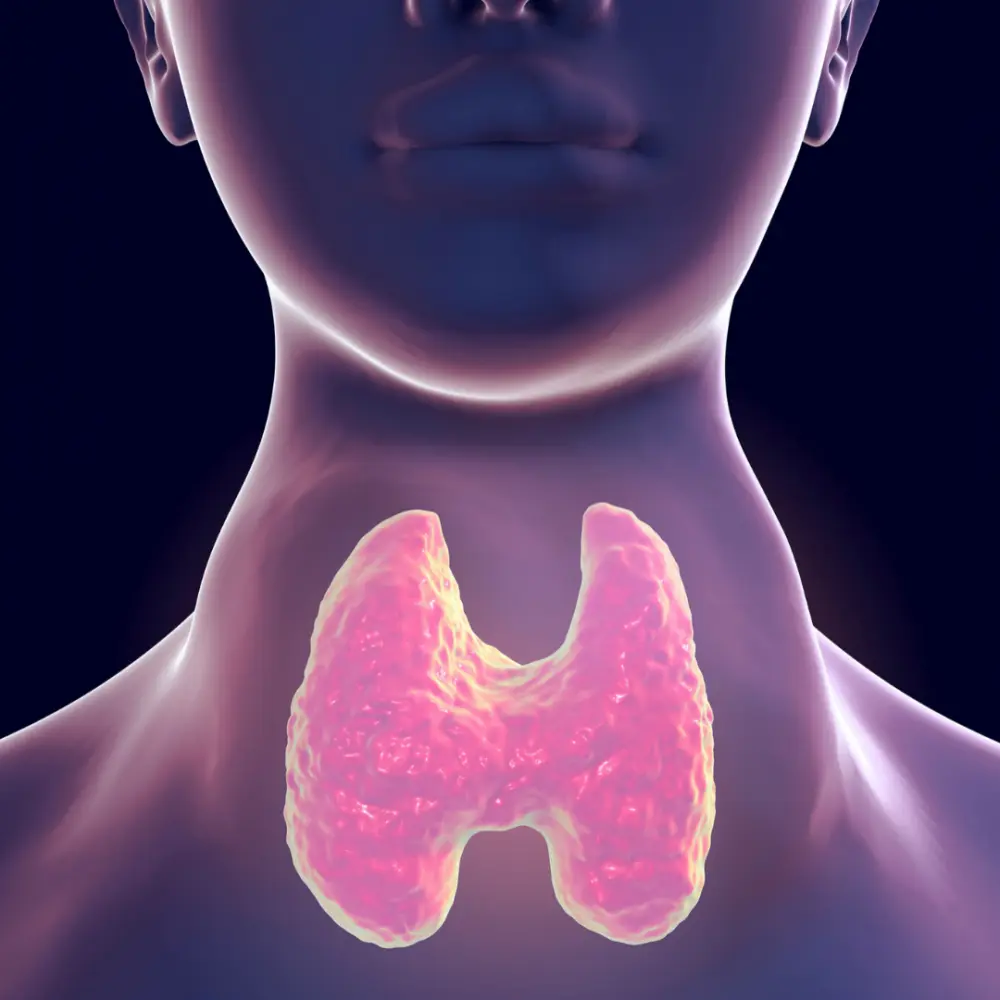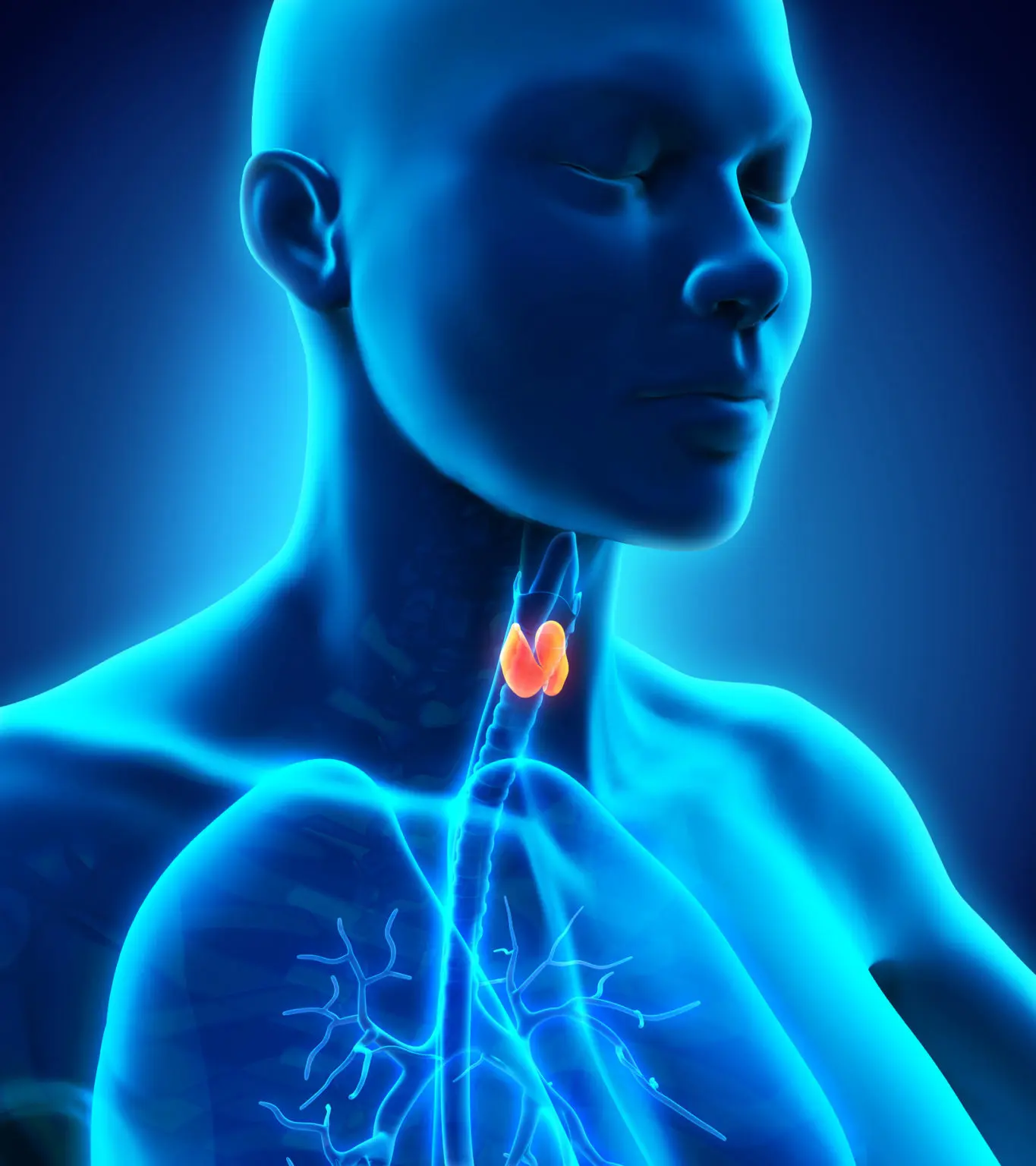Can Thyroid Disease be Cured?
Sometimes
Management is often lifelong, and outcomes depend on the specific thyroid disorder and response to treatment

What is Thyroid Disease?
Thyroid disease includes various conditions affecting the thyroid gland, such as hypothyroidism or hyperthyroidism. Treatment depends on the specific thyroid disorder and may involve medications or other interventions. Regular monitoring is important for assessing thyroid function, adjusting treatment, and preventing complications.

Clinical Aspects

Characteristics
Various disorders affecting the thyroid gland’s function

Symptoms
Fatigue, weight changes, mood swings, temperature sensitivity

Diagnosis
Clinical evaluation, blood tests, sometimes imaging

Prognosis
Variable, depends on type and treatment

Complications
Hormonal imbalances, potential for complications
Etiology and Treatment

Causes
Autoimmune conditions (Hashimoto’s thyroiditis, Graves’ disease), iodine deficiency, genetic factors

Treatments
Medications (thyroid hormones, antithyroid drugs), radioactive iodine, surgery (in some cases)

Prevention
Medications (thyroid hormones, antithyroid drugs), radioactive iodine, surgery (in some cases)
Public Health and Patient Perspectives

Epidemiology
Common, can occur in individuals of any age

Patient Perspectives
Lifelong management tailored to underlying cause
While the information presented here reflects the current knowledge about these conditions and treatments, it’s important to understand that individual cases may differ. Consulting with a healthcare professional is crucial for accurate information tailored to your specific needs.
Share: